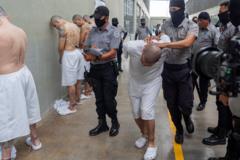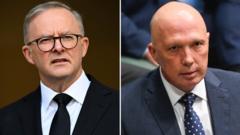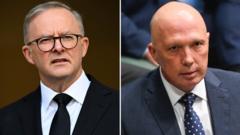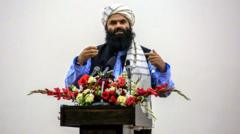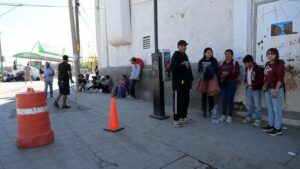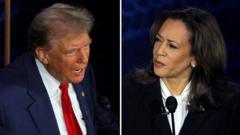U.S. Secretary of State Marco Rubio reveals he has revoked more than 300 visas, asserting that individuals posing threats to national interests are being expelled. This decision, focused on students and visitors, raises concerns about the potential impact on international educational exchanges and civil liberties.
Visa Revocation Policy: Impacts on International Students and Visitors

Visa Revocation Policy: Impacts on International Students and Visitors
Secretary of State Marco Rubio revokes over 300 visas, citing national security and foreign policy violations, amidst mixed reactions regarding the implications for international students and visitors.
Article text:
In a decisive move that has provoked significant debate, Secretary of State Marco Rubio announced the revocation of over 300 visas, mostly targeting international students and visitors. Speaking from an Air Force jet during a tour of South America, Rubio stated that these actions align with U.S. national security interests, and he personally reviews each case, emphasizing that individuals engaged in activities seen as contrary to U.S. foreign policy deserve expulsion.
The revocation process has raised eyebrows, as Rubio has described it as a daily routine since he took office in late January. "If they're involved in counterproductive activities, we’ll revoke their visa," he asserted, adding that he considers whether the individual would have been admitted had their background been known at the time of entry. This has led to tighter scrutiny and more stringent measures affecting not only visitors but also permanent residents whose green cards may be revoked based on criminal charges or political activism against U.S. policy.
Critics of Rubio's actions argue that this approach could undermine the United States' longstanding commitment to academic freedom and cultural exchange. The fear is that it may deter international students, who play a crucial role in enhancing diversity and fostering global understanding on college campuses, from pursuing education in America. Moreover, the vagueness surrounding how individuals are identified for visa revocation has raised concerns about potential abuse of power and the erosion of civil liberties, with advocates warning of the chilling effects on free speech and dissent.
As the debate unfolds, it remains to be seen how this new policy will affect the landscape of higher education in the U.S. and whether it will lead to increased tensions between the government and the international community. The ramifications on America’s reputation as a welcoming space for education could be profound, shaping the academic pursuits of countless future students.
In a decisive move that has provoked significant debate, Secretary of State Marco Rubio announced the revocation of over 300 visas, mostly targeting international students and visitors. Speaking from an Air Force jet during a tour of South America, Rubio stated that these actions align with U.S. national security interests, and he personally reviews each case, emphasizing that individuals engaged in activities seen as contrary to U.S. foreign policy deserve expulsion.
The revocation process has raised eyebrows, as Rubio has described it as a daily routine since he took office in late January. "If they're involved in counterproductive activities, we’ll revoke their visa," he asserted, adding that he considers whether the individual would have been admitted had their background been known at the time of entry. This has led to tighter scrutiny and more stringent measures affecting not only visitors but also permanent residents whose green cards may be revoked based on criminal charges or political activism against U.S. policy.
Critics of Rubio's actions argue that this approach could undermine the United States' longstanding commitment to academic freedom and cultural exchange. The fear is that it may deter international students, who play a crucial role in enhancing diversity and fostering global understanding on college campuses, from pursuing education in America. Moreover, the vagueness surrounding how individuals are identified for visa revocation has raised concerns about potential abuse of power and the erosion of civil liberties, with advocates warning of the chilling effects on free speech and dissent.
As the debate unfolds, it remains to be seen how this new policy will affect the landscape of higher education in the U.S. and whether it will lead to increased tensions between the government and the international community. The ramifications on America’s reputation as a welcoming space for education could be profound, shaping the academic pursuits of countless future students.

